Filter by
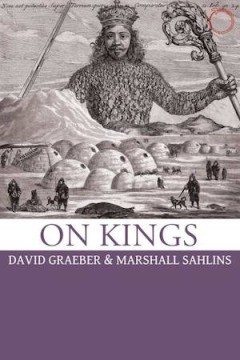
On Kings
In anthropology, as much as in the current popular imagination, kings remain figures of fascination and intrigue. As the cliché goes, kings continue to die spectacular deaths only to remain subjects of vitality and long life. This collection of essays by a teacher and his student — two of the world's most distinguished anthropologists— explores what kingship actually is, histor…
- Edition
- -
- ISBN/ISSN
- 9780986132506
- Collation
- -
- Series Title
- -
- Call Number
- 300
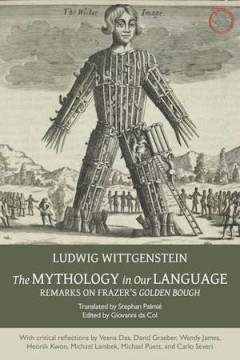
The Mythology in Our Language: Remarks on Frazer's Golden Bough
In 1931 Ludwig Wittgenstein wrote his famous Remarks on Frazer's “Golden Bough.". At that time, anthropology and philosophy were in close contact—continental thinkers drew heavily on anthropology's theoretical terms, like mana, taboo, and potlatch, in order to help them explore the limits of human belief and imagination. Now the book receives its first translation by an anthropolog…
- Edition
- Col, Giovanni
- ISBN/ISSN
- 9780990505068
- Collation
- -
- Series Title
- -
- Call Number
- 300
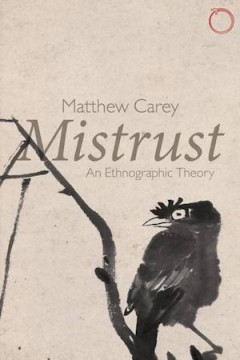
Mistrust: An Ethnographic Theory
Trust occupies a unique place in contemporary discourse. Seen as both necessary and good, it is variously depicted as enhancing the social fabric, lowering crime rates, increasing happiness, and generating prosperity. It allows for complex political systems, permits human communication, underpins financial instruments and economic institutions, and holds society itself together. There is scant …
- Edition
- -
- ISBN/ISSN
- 9780997367522
- Collation
- -
- Series Title
- -
- Call Number
- 300
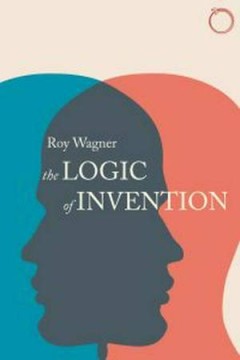
The Logic of Invention
In this long-awaited sequel to The Invention of Culture, Roy Wagner tackles the logic and motives that underlie cultural invention. Could there be a single, logical factor that makes the invention of the distinction between self and other possible, much as specific human genes allow for language? Wagner explores what he calls “the reciprocity of perspectivesâ€_x009d_ through a journey …
- Edition
- -
- ISBN/ISSN
- 9780999157053
- Collation
- -
- Series Title
- -
- Call Number
- 300
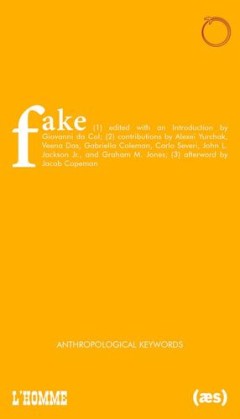
'Fake: Anthropological Keywords
Fakes, forgery, counterfeits, hoaxes, bullshit, frauds, knock offs—such terms speak, ostensibly, to the inverse of truth or the obverse of authenticity and sincerity. But what does the modern human obsession with fabrications and frauds tell us about ourselves? And what can anthropology tell us about this obsession? This timely book is the product of the first Annual Debate of Anthropological…
- Edition
- -
- ISBN/ISSN
- 9780997367577
- Collation
- -
- Series Title
- -
- Call Number
- 300
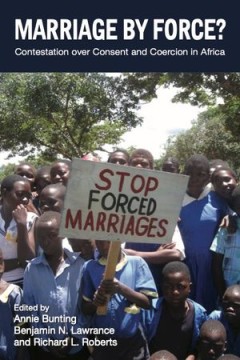
Marriage by Force?
With forced marriage, as with so many human rights issues, the sensationalized hides the mundane, and oversimplified popular discourses miss the range of experiences. In sub-Saharan Africa, the relationship between coercion and consent in marriage is a complex one that has changed over time and place, rendering impossible any single interpretation or explanation. The legal experts, anthropol…
- Edition
- -
- ISBN/ISSN
- 9780821445495
- Collation
- -
- Series Title
- -
- Call Number
- 300
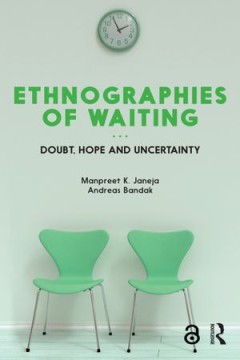
Ethnographies of Waiting Doubt, Hope and Uncertainty
We all wait – in traffic jams, passport offices, school meal queues, for better weather, an end to fighting, peace. Time spent waiting produces hope, boredom, anxiety, doubt, or uncertainty. Ethnographies of Waiting explores the social phenomenon of waiting and its centrality in human society. Using waiting as a central analytical category, the book investigates how waiting is negotiated in m…
- Edition
- -
- ISBN/ISSN
- 9781474280280
- Collation
- -
- Series Title
- -
- Call Number
- -
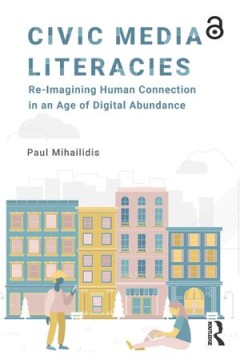
Civic Media Literacies Re-Imagining Human Connection in an Age of Digital Ab…
Civic life today is mediated. Communities small and large are now using connective platforms to share information, engage in local issues, facilitate vibrant debate, and advocate for social causes. In this timely book, Paul Mihailidisexplores the texture of daily engagement in civic life, and the resources—human, technological, and practical—that citizens employ when engaging in civic actio…
- Edition
- -
- ISBN/ISSN
- 9781138695825
- Collation
- -
- Series Title
- -
- Call Number
- -
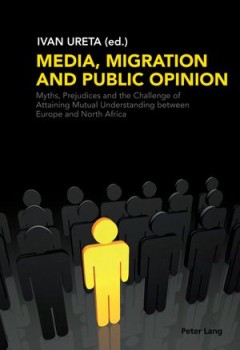
Media Migration and Public Opinion Myths Prejudices and the Challenge of Att…
Sensitive issues like migration and human mobility provoke paradigms and prejudices in public opinion. Media, Migration and Public Opinion is a collective effort of academic criticism to over-come these myths. The main motive of this book is linked to the fact that migration, media and public opinion related issues focusing on North Africa have not been addressed properly by available literatur…
- Edition
- -
- ISBN/ISSN
- 9783034305778
- Collation
- -
- Series Title
- -
- Call Number
- -
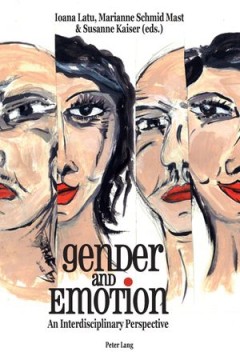
Gender and Emotion An Interdisciplinary Perspective
Women express more emotion than men, but do they also experience more emotion than men? Are emotions represented differently in men and women’s brains? What are the origins of gender differences in emotions – are we born different or is it socialization that renders us different? What are the implications of gender differences in emotion for general well-being, insomnia, depression, antisoc…
- Edition
- -
- ISBN/ISSN
- 9783034311755
- Collation
- -
- Series Title
- -
- Call Number
- -
 Computer Science, Information & General Works
Computer Science, Information & General Works  Philosophy & Psychology
Philosophy & Psychology  Religion
Religion  Social Sciences
Social Sciences  Language
Language  Pure Science
Pure Science  Applied Sciences
Applied Sciences  Art & Recreation
Art & Recreation  Literature
Literature  History & Geography
History & Geography